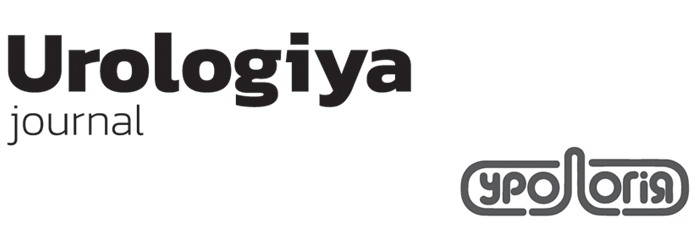S.P. Pasiechnikov, R.A. Lytvynenko
Impact of infectivity of opportunistic pathogens on the appearance of early post-operative complications in patients with benign prostate hyperplasia complicated with acute urinary retention
Our article represents the results of infectivity impact character of opportunistic pathogens on the appearance of early post-operative complications in 56 patients with benign prostate hyperplasia (BPH) complicated with acute urinary retention (AUR). Bacteriologic investigation оf scrape from urethra, prostatic excretion and prostatic tissue removed while prostatectomy revealed opportunistic microorganisms in 67,8 % patients. The infectivity of opportunistic pathogens of prostatic excretion were identified in 64,2% of patients, of prostatic tissue removed while prostatectomy - 55,4%.
Infectivity with opportunistic microorganisms in patients with AUR significantly increases in 1,8 times the frequency of open prostatectomy complications comparing to uninfected patients (60,5% vs. 33,3%). In the spectrum of opportunistic microorganisms isolated from samples of clinical material in patients with BPH complicated with AUR, gram-positive bacteria (51,7 ± 6,7 %) are more common, with sufficient detection rate of gram-negative pathogens (44,7 ± 6,6%). Escherichia coli (26,8%), Enterobacter aerogenes (10,7%) and Proteus mirabilis (9,0%) were predominant among gram-negative pathogens. The frequency of infectious-inflammatory complications appearance in patients infected with opportunistic microorganisms predominates in 2,8 times than uninfected patients (47,4±8,1% vs. 16,7 ± 9,0%, p<0,05), mainly by acute orchoepididimitis (13,2 ± 5,5 %).

